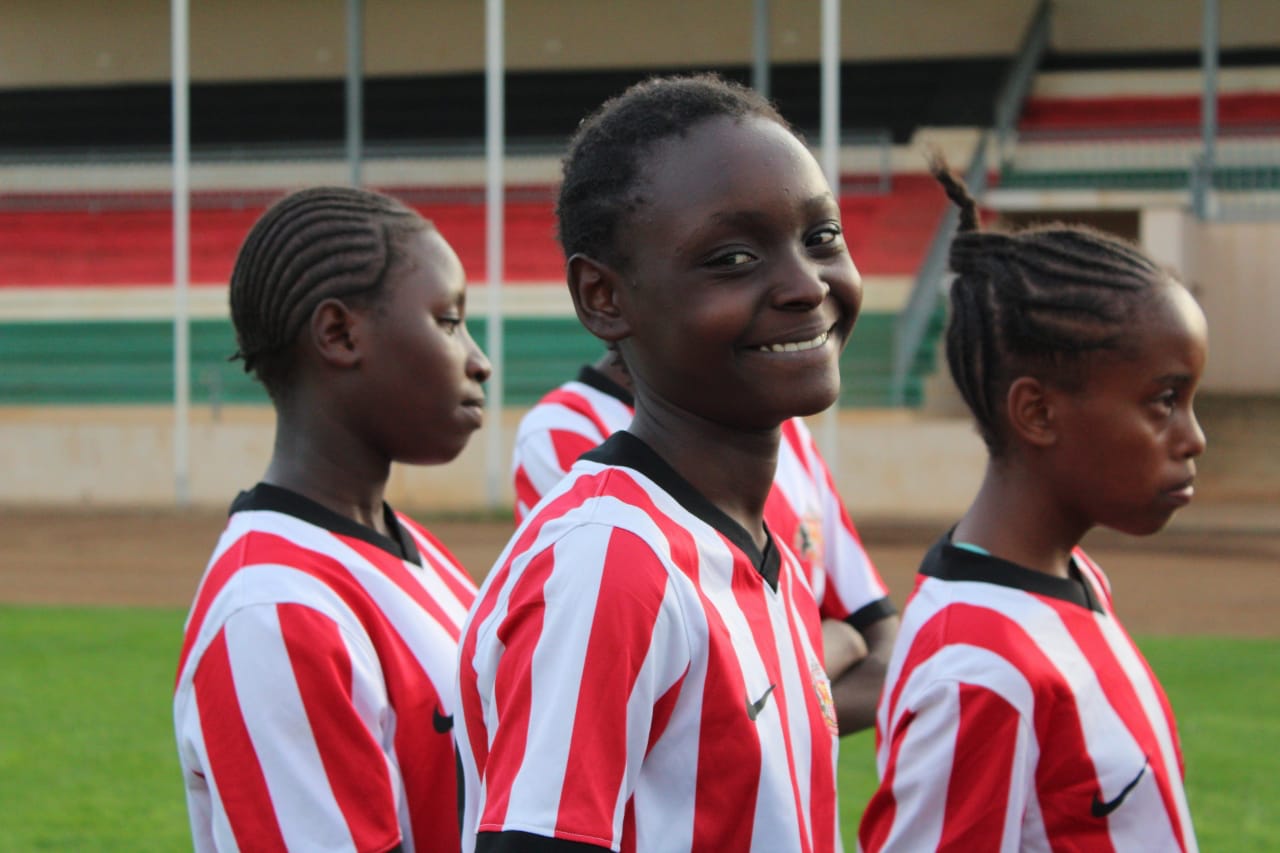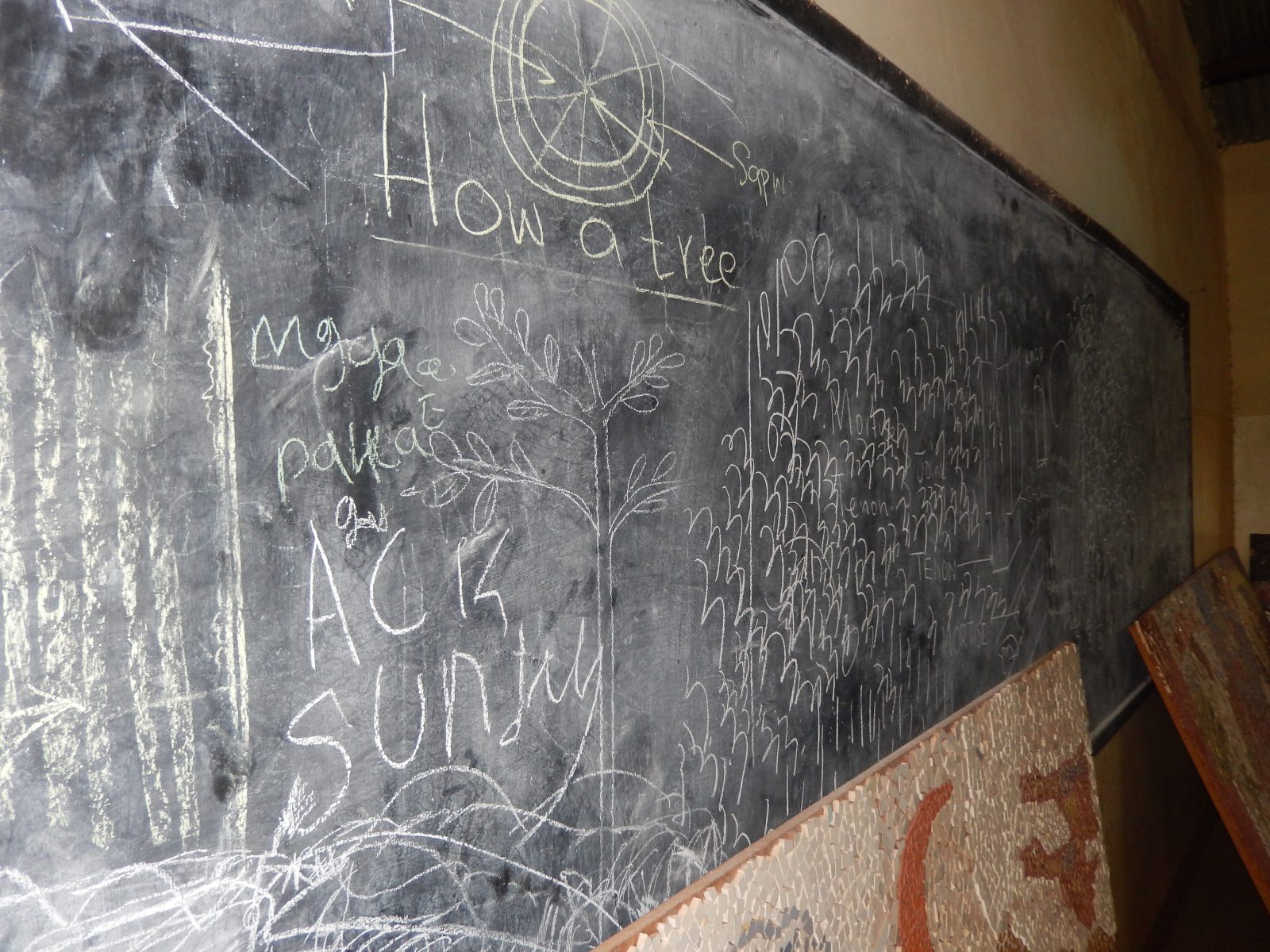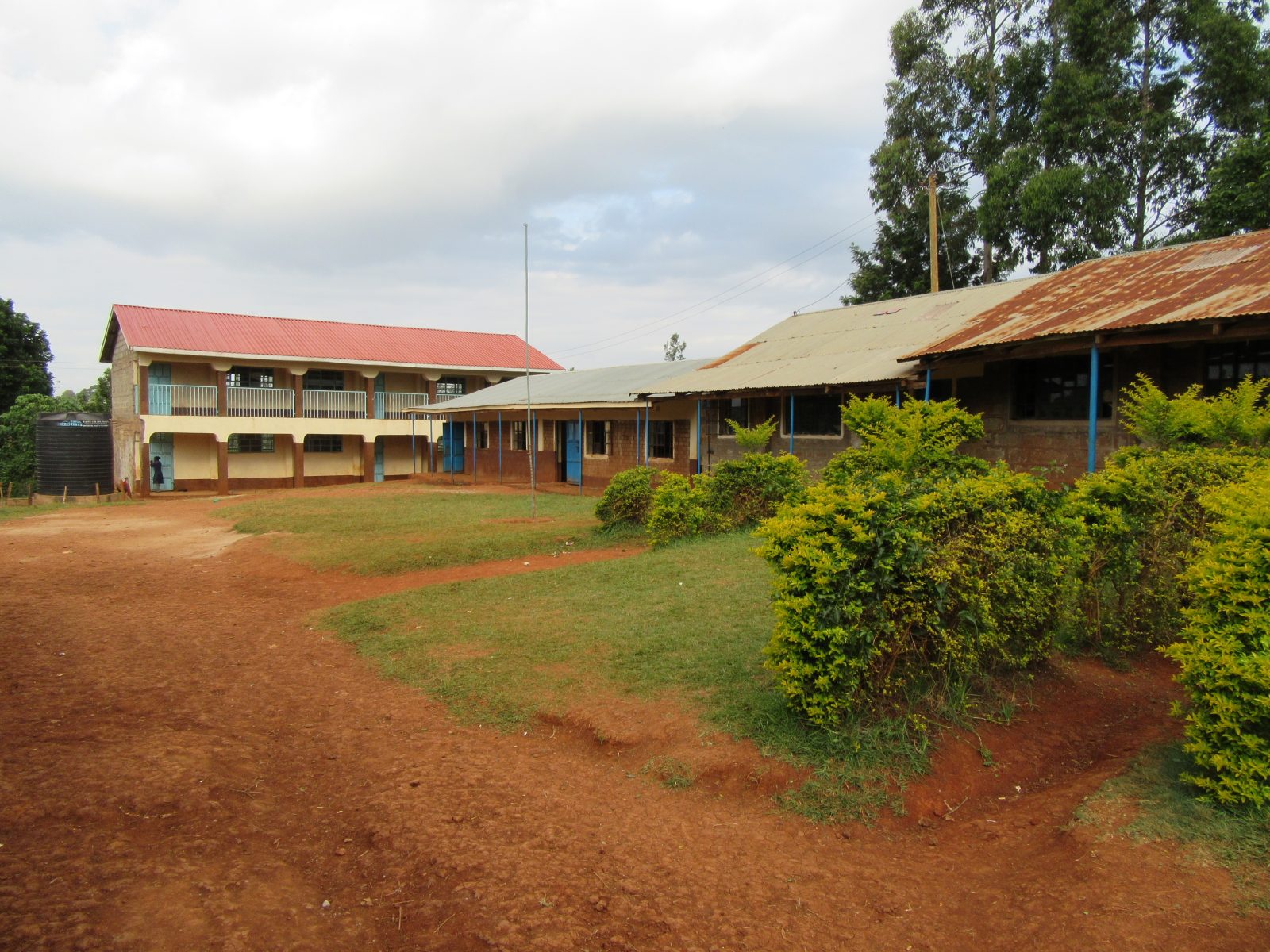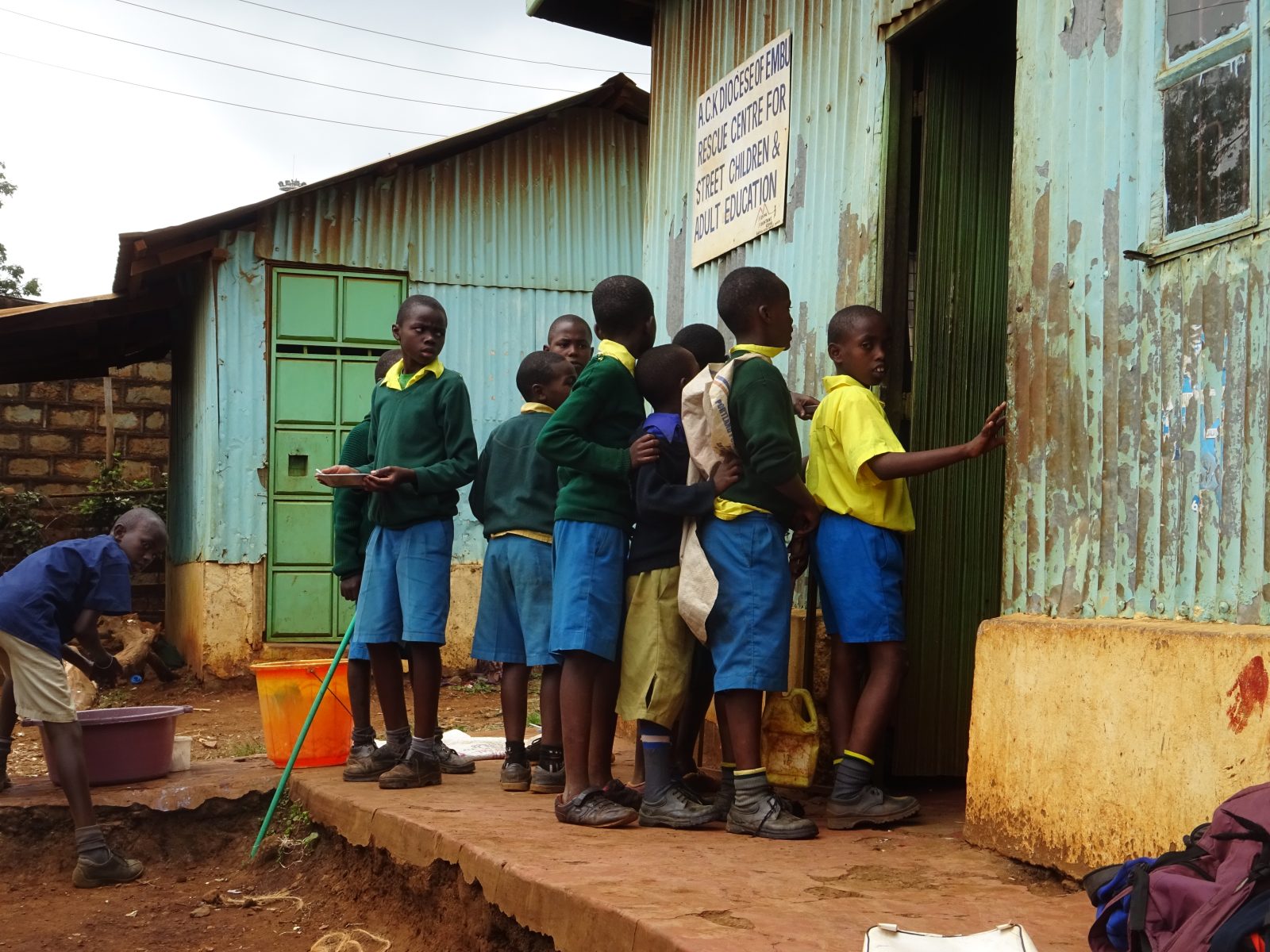
Embu Rescue Centre for young people
The Embu Rescue Centre provides a safe place where around 70 – 150 street children can get a daily lunch and breakfast and receive help from caring adult staff and volunteers. The numbers do vary, but around 40 of the children would be classed as sleeping rough, and the rest are children are at school whose parents cannot afford to pay for lunch. We also provide a small ECD (early child development) facility and adult literacy class at the centre free of charge. The Rescue Centre began in 2005 and has become very well established in the community, contributing to a significant reduction in the numbers of ‘street children’ in the town.
Overview
Feeding children is one of the key components of our wider aim to provide a number of services and facilities for needy children who come from different backgrounds. Some are children who sleep rough, either outdoors or on the floor in a shack with no belongings to speak of, and who are often forced into glue addiction or crime. Some are children who do live with a family member and who go to school but for whom there is little or no money to provide the basics.
The Centre has been running since 2005 on premises which is owned by the ACK (African Catholic Church). We are the only such feeding centre in town and we are well known to the authorities including the Children’s Officer who has jurisdiction over facilities such as ours. We collaborate closely with the police, the children’s court, the education authorities, health authorities and the two big schools in the town. Crucially we are the only centre where children living rough feel safe to come and visit and get some food, so we are integral to providing key data for local government statistics.
When we began this programme, there were an estimated 190 children living rough in Embu and the problem was getting worse. A census in 2019 indicated that the number had dropped to around 50 and our Centre was cited as part of that turnaround. Key to our success has been the long term consistent provision of food, and also employing the same people at the Centre for so long.
The children are known to us individually, and we continually check on their welfare, providing food, helping with health issues, and we encourage them to take part in our other programmes like lifeskills, football, basic literacy and open counselling sessions. Over the years we have also provided dozens of young adults with small financial grants to start businesses like car washing and making metal boxes. Some of the beneficiaries we have assisted in going to school, joining national youth schemes, joining the Kenyan Army, and getting work experience with local businesses and trades. We help them with getting ID cards and we help with the myriad domestic issues that affect these young people. This approach in treating every child as an individual with individual issues is at the heart of the value system that founder Gavin Bate instilled in the charity from the start.
Gilbert Njeru is the key person who has the trust of the beneficiaries, and for years now he has been helping the young people deal with many of the issues they face, including harassment from the police, pressure to engage in gang membership, begging and substance abuse. Gilbert and the team in Embu are all experienced youth counsellors and they speak the language of these victims of poverty and abuse.
The feeding programme provides food but also a safe place, a place where nobody is judged but there are rules which are followed, a place of certainty and support in an otherwise very difficult world. The children know that Moving Mountains is like a surrogate family, and many of our adult beneficiaries came to the centre when they were small children. We are extremely proud to provide such a place and to be instrumental in tackling the systemic problem of having hungry children sleeping rough on the streets.
Nowadays our cook of 19 years Lilian is helped by Janet, who is also coach for the girls team at Black Cats. Janet was one of the children who received her lunches every day throughout her early years, who then joined school and took part in our programmes and has emerged from such difficulty into a fine person and a valued employee. I am the proof, she says, and perhaps a great embodiment of the famous Jungian phrase:
“I am not what happened to me, I am what I choose to become”.
Facts of the Rescue Centre
The centre is open Monday to Friday and also provides showers and toilets and a space to relax and be safe. Our cooks Lilian and Janet provide a decent meal every day and porridge in the morning for between 70 and 120 children from a variety of backgrounds and we operate an open door policy. The numbers depend on a variety of factors, for example:
- Recent changes in the Kenyan educational system has meant that children in grades 7 and 8 at junior secondary are now not allowed to leave school for lunch, so we are now looking at providing a lunch delivery service to them, subject to agreement from the head teachers.
- During school term time the numbers are typically around 60 – 80, but during school holidays this can rise to 120.
- During times of drought when food prices escalate and families struggle, the numbers will rise to 150.
- If rains are good and fruits come into season then a lot of children will move to other villages where they can pick food for free. This is a seasonal movement which again depends on weather.
Most of the children we feed also take part in our other programmes, and the most popular is the Black Cats Football Academy which trains children every day. As of 2025, around 30 children are not in the Black Cats and these are children who live rough, and it is our aim to help rehabilitate those individuals through counselling and encourage them to join our programmes. The rest will be in school during the day, have lunch at the Centre and then come to the training grounds for football and play after school. We can then get them home safely when their parents finish work.
Rescue Centre in the context of the Rehabilitation Programme
Moving Mountains supports and runs a wide range of facilities and services for children, something we call ‘social prescribing’ in the UK. The feeding programme at the Rescue Centre is one of the key programmes because obviously hunger is such a driving force. Children come every day to get food, and mostly the meal they get is the only one of the day, so it’s a central part of their daily routine.
But we are much more than that, the MM staff become confidants to the young people and with trust built up over years they can encourage them to join other programmes like the football academy or the lifeskills programme, or to join a local school, or go to counselling to tackle addictions, or get some work experience, perhaps get a job or start a small business. Mental health is a significant factor in every one of these beneficiary’s lives, and all of our staff have training and long experience in how to work with young people, and also the families and also the communities.
We don’t work in isolation, we integrate with the local schools and help them develop their own facilities. For example we help develop music classes, sports and drama clubs, and we run the life skills activities. Plus of course we fund refurbishments of County Primary and Urban Primary and the local school for children with special needs. On the lower slopes of Mt Kenya, about 10 kms outside the town we have also re-built the rural Gatwe Primary School.
The vision of the founder was to never anonymise the beneficiaries but to treat every individual as just that, and to provide a kind of ball of security around a child, in which he or she can grow normally. The notion of social prescribing works in countries where the State provides a comprehensive structure to provide for many hundreds of different kinds of needs, but in many places that indrastructure simply doesn’t exist. Moving Mountains sees itself as that ‘hub’ which works along the families, the communities, the church and the authorities to try and help children caught in the desperate trap of material poverty, abuse and a lack of human rights, and also to prevent the problem from perpetuating.
Donors of the Rescue Centre
Throughout the years the Embu Rescue Centre has relied on our general funds, never having received a grant or government funding. Many donors have been directly supportive of this really quite unique facility (in the sense of it having surivived for so long and genuinely tackled the root cause of children living rough), and we have had many volunteers come to help. Schools such as King Edwards School in Bath have provided many years or support for the Centre, and our medical elective students always get involved preparing meals for children.
In 2005 we obtained permission to use the centre from the church and did some renovations and put in a store, a kitchen with a wood and gas stove, toilet and shower facilities, installed a perimeter fence and equipped the centre with utensils and equipment. From those humble beginnings we started feeding children; in those days most of them were sleeping rough but as the years passed those numbers reduced as as managed to encourage them into school, and we provided lunches for kids in the two primary schools in town too.
Adventure Alternative school groups, volunteers and medical elective students have provided continual support for the Rescue Centre through simply coming on the trip which generates revenue for the Centre, and also through direct fundraising. Many people over the years have helped to renovate and build the centre and have peeled potatoes and prepared meals!
- King Edwards School is a major donor to the Centre and has brought groups to visit Kenya for many years. Their commitment has been a serious and vital lifeline, not least during covid when the school helped out with virtual fundraising events that literally kept us going.
- Steven Fletcher, Vision for Kids Northern Ireland
- Mr Chris Bowden has for many years funded the feeding programme for the children.
How to Get Involved
Volunteering – teaching non-examinable subjects such as music, sport, arts and running extra-curricular clubs and providing small group reading lessons and mentoring. Note that this position will require a DBS check and some evidence and experience of working with children.
Africamp School Trips – these summer camps for Kenyan children are a core part of our identity as Moving Mountains and we had our first camp back in 1996 in Nairobi. You can help run one of these camps with your school and be a part of something really quite extraordinary.
There are plenty of videos from some of our schools trips here.
Embu Rescue Centre Youth Group
In 2005 most of the Rescue Centre kids had a lack of direction in their life, many were sleeping on the streets and sniffing glue daily. When we started the Black Cats football clubs in Embu in 2006 we realised how bad the addiction to glue was…some of the boys were hiding glue in the sleeves of their football tops and sniffing during competitive matches, they were certainly rough diamonds!
The difference in those same people today is astounding, and is testament to the hard work of the volunteers and staff at the Embu Rescue Centre, particularly Lilian Wanjiru who acts like a mother to all the kids, and of course Gilbert Njeru.
The aim of our youth group is to promote and develop small income-generating projects to provide employment and money. We registered them as a youth group with the Jua Kali Association of Embu and then paid for training and group loans and savings with Care Kenya. Successful local enterprises have included a car wash, bicycle repairs and community clear up gangs.
The purchase of a power washer and large water storage tank for example greatly benefited the car wash business with a fast turnaround, more clients and more money. This maybe doesn’t sound like much but the car wash business has been going now for 15 years and provides work and money for many young people. Not only that but the profits are recycled into small start up loans for new businesses for the young people. For example one of the boys saved 7,000ksh and he bought a tool box kit to work as a mechanic and managed to get a job as a turn boy with one of the lorry owners in Embu and begin earning an income. He still has that job and affords his own rent and lifestyle.
In 2012 we bought the boys an interlocking brick making machine so they can put their efforts into making the bricks which they can sell at very good prices.
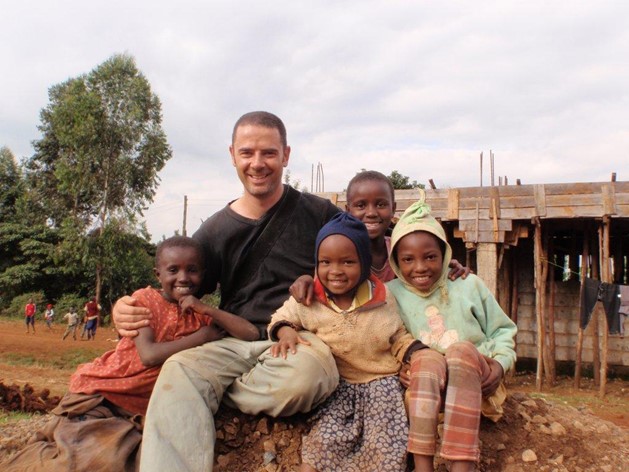
Future Aims
The aim is always to keep the Centre open and providing food for needy children, and ultimately that is what we have achieved since 2005. We have been instrumental in reducing the number of children sleeping rough from around 190 to nearer 40, but our aim is to reduce it to zero. This doesn’t just mean the feeding programme, this means working with each child and providing a social prescribing hub for every one.
The feeding centre is always in need of renovations and new equipment, and we are always looking for volunteers to come out and assist. It’s important that these children feel the sense of empowerment and pride when they eat well and go to the football club, or go camping, or sign up to school, or are simply listened to.
Another perennial aim is to always improve the food we provide. Cost of living is high and sometimes we are forced to provide only basic necessities like rice, ugali maize, corn, vegetables and beans. Sometimes we can provide fruit and meat and milk, so a future aim is to have the financial security to handle the rising cost of food prices and provide more than just a basic necessity for the beneficiaries.
Embu Rescue Centre Gallery
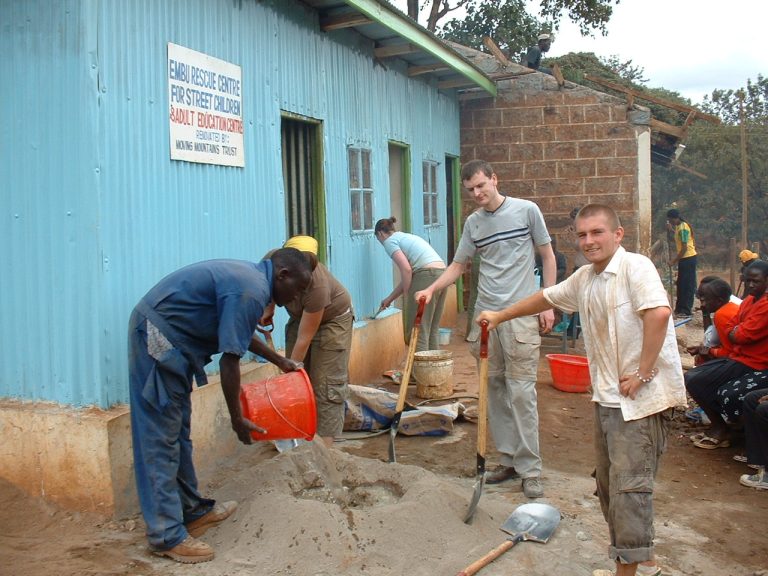
Support Moving Mountains
Other Projects You Might Be Interested In
